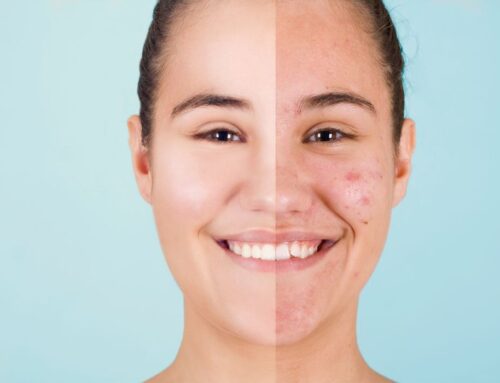Common Questions about Why Sunscreen is Essential For Healthy Skin Answered
Sunscreen is a crucial part of any skincare routine, yet many people still have questions about why it is so essential for healthy skin. In this article, we will answer some of the most common questions about sunscreen and why it should be an integral part of your daily skincare regimen.
What is sunscreen, and how does it work?
Sunscreen is a product that is applied topically to the skin to protect it from the harmful effects of the sun’s ultraviolet (UV) radiation. There are two types of UV radiation that can damage the skin: UVA and UVB. UVA rays penetrate deep into the skin and can cause premature aging, while UVB rays cause sunburns.
Sunscreen contains active ingredients that work by either reflecting or absorbing UV radiation. Chemical sunscreens contain compounds such as avobenzone, oxybenzone, and octinoxate that absorb UV radiation and convert it into heat, which is then released from the skin. Physical sunscreens, on the other hand, contain minerals such as zinc oxide and titanium dioxide that reflect UV radiation away from the skin.
Why is sunscreen important for healthy skin?
Sunscreen is essential for healthy skin because exposure to UV radiation can cause a wide range of skin problems, including premature aging, sunburn, and skin cancer. UV radiation damages the DNA in skin cells, which can cause mutations that can lead to skin cancer.
Sunscreen also helps to prevent premature aging by protecting the skin from UVA radiation, which can cause wrinkles, fine lines, and age spots. In fact, studies have shown that using sunscreen regularly can reduce the signs of aging by up to 24%.
Do I need to wear sunscreen every day?
Yes, it is recommended that you wear sunscreen every day, even on cloudy or overcast days. UV radiation can penetrate clouds and cause skin damage, so even if it is not sunny outside, you still need to protect your skin. It is especially important to wear sunscreen if you spend a lot of time outdoors or if you have fair skin that is more susceptible to sun damage.
What is the difference between SPF and PA+?
SPF stands for Sun Protection Factor, and it measures how well a sunscreen protects against UVB radiation. The higher the SPF, the more protection it provides. For example, a sunscreen with an SPF of 30 blocks about 97% of UVB rays, while a sunscreen with an SPF of 50 blocks about 98% of UVB rays.
PA+ stands for Protection Grade of UVA, and it measures how well a sunscreen protects against UVA radiation. The more plus signs, the higher the protection. For example, sunscreen with a PA+ rating provides moderate protection against UVA radiation, while sunscreen with a PA++++ rating provides the highest level of protection.
How much sunscreen should I apply, and how often should I reapply?
You should apply enough sunscreen to cover all exposed skin, including your face, neck, and ears. The American Academy of Dermatology recommends using about one ounce (the amount in a shot glass) of sunscreen for each application. You should also reapply sunscreen every two hours, or immediately after swimming or sweating.
Can I use sunscreen on my face every day?
Yes, you can use sunscreen on your face every day, and in fact, it is recommended. Sunscreen can help protect your skin from UV radiation, which can cause premature aging and skin cancer. Look for a sunscreen that is designed specifically for the face, as these are often less greasy and less likely to cause breakouts.
Can sunscreen cause acne?
Some sunscreens can cause acne, especially if they are oily or contain pore-clogging ingredients. If you are prone to acne, look for a sunscreen that is labeled as non-comedogenic, which means it is less likely to clog pores. You can also look for sunscreens that are designed specifically for acne-prone skin or use mineral-based sunscreens that are less likely to cause breakouts.
Can sunscreen expire?
Yes, sunscreen can expire, and it is important to check the expiration date before using it. The active ingredients in sunscreen can break down over time, reducing their effectiveness. In general, sunscreen is good for about three years from the date of manufacture, but this can vary depending on the formulation and storage conditions. If your sunscreen has expired, it is best to throw it away and buy a new one.
Can I use a moisturizer with SPF instead of sunscreen?
While moisturizers with SPF can provide some protection against UV radiation, they are not as effective as standalone sunscreens. Moisturizers are designed to hydrate the skin, while sunscreen is designed to protect the skin from UV radiation. Therefore, it is best to use a separate sunscreen in addition to your moisturizer with SPF.
Can I use sunscreen on my lips?
Yes, it is important to protect your lips from UV radiation, which can cause chapped lips, sunburn, and even skin cancer. Look for a lip balm or lipstick that contains sunscreen with at least SPF 15. You can also apply regular sunscreen to your lips, but be sure to use a small amount and avoid getting it in your mouth.
In conclusion, sunscreen is an essential part of any skincare routine, as it helps protect the skin from the harmful effects of UV radiation. When choosing a sunscreen, look for one with a high SPF and PA+ rating, and make sure to apply enough and reapply often. If you have any concerns about sunscreen or how to use it properly, consult with a dermatologist. By incorporating sunscreen into your daily skincare regimen, you can help keep your skin healthy and beautiful for years to come.

